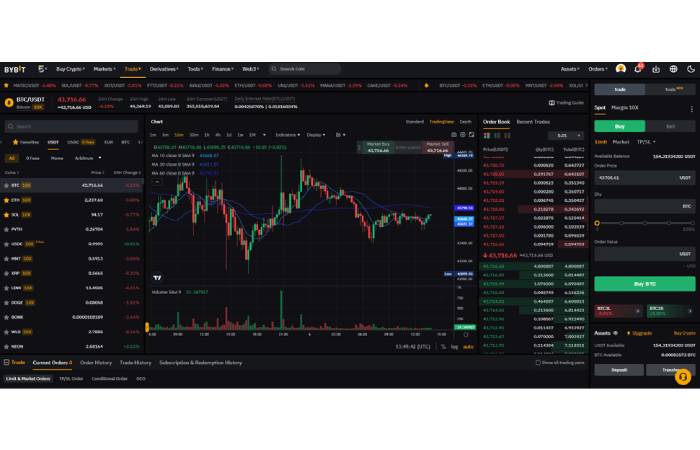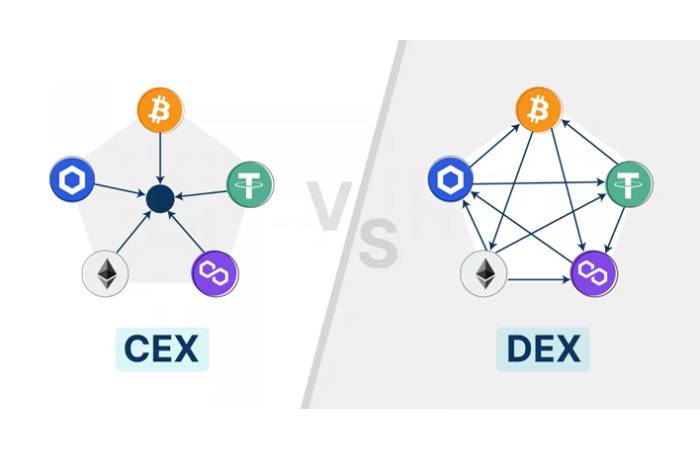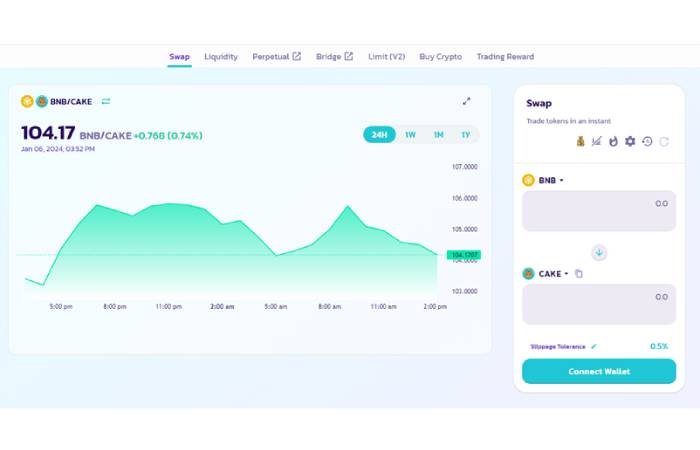Cryptocurrency exchanges are a staple in the world of digital assets, providing a platform for exchanging cryptocurrencies. There are these main types of exchanges: centralized and decentralized. Each of them has its own advantages and disadvantages, as well as its own factors on which their popularity and profitability depend.
Let’s look at the factors influencing the cost of Merehead platforms. How much does it cost to develop a cryptocurrency exchange and what does it depend on? What indicators have an impact is key. Without a detailed study, you can go into the red or turn to incompetent specialists. You can avoid this by delving into the essence of the issue.
Table of Contents
Pros of centralized exchanges
Centralized exchanges often provide a variety of tools and services such as margin trading, stop losses, and others for portfolio management. Many of them also offer the ability to trade cryptocurrencies directly with fiat currencies, making it easier to enter and exit the market. May be subject to regulations and laws, which in certain cases promotes greater transparency and trust among users.
Advantages of centralized exchanges:
· Usually have a large trading volume, which provides high liquidity for traders. This allows you to quickly make transactions at current market prices.
· The interface of centralized exchanges is usually easy to use for beginners. They provide more intuitive tools for analysis and trading.
· Security – they are actively implementing security measures, we are talking about two-factor authentication and storing coins in a cold wallet, which reduces the risks of hacker attacks.
Such cryptocurrency exchanges are quite profitable, especially in terms of convenience and a wide range of services provided. Therefore, they are popular among traditional and experienced traders.

Platform disadvantages
Centralized exchanges usually require you to provide personal information at the time of registration, which infringes on user privacy. Technical failures, server overloads and other technical problems may lead to temporary access restrictions or the inability to conduct transactions. Disadvantages of centralized exchanges:
- Centralized control – the lack of decentralization means that the cryptocurrency exchange knows everything about users’ funds, which may entail risks associated with the loss of coins due to hacker attacks or improper actions of managers.
- Censorship – subject to rules and regulations that may limit the freedom to trade and use cryptocurrencies.
- Security – despite the measures taken, centralized exchanges are still susceptible to hacker attacks, which can lead to the loss of user funds.
The effectiveness and reliability of the final project depend on the competence and integrity of its managers, which can become a source of risk. If hacked, attackers can gain access to confidential user information. Centralized exchanges, despite their advantages, are subject to certain risks and disadvantages, which calls into question the degree of security and decentralization in the world of cryptocurrencies.

Pros of decentralized exchanges (DEX)
Decentralized exchanges provide greater security since users control their own keys and funds are stored in smart contracts on the blockchain. They often provide the best level of anonymity and privacy because they do not require you to enter personal information to register. Such sites are usually not subject to censorship, which promotes freedom of trade and participation in financial transactions.
Disadvantages of decentralized exchanges (DEX)
Decentralized cryptocurrency exchanges often face the problem of low liquidity, which can slow down the process of transactions. Their interfaces can be difficult to understand for inexperienced users. Therefore, they are less attractive to novice traders.
Factors influencing development costs:
- type;
- security;
- integration with blockchain.
Decentralized exchanges typically require more complex development, which can increase costs compared to their centralized counterparts. Implementing high security standards, especially in the case of centralized projects, can increase development costs. Depending on the blockchain chosen, the need for integration and interoperability affects the overall cost of creation.

Both models include both advantages and disadvantages. The choice between centralized and decentralized options depends on the specific needs and preferences of users. It is important to consider both technical and economic aspects when developing a cryptocurrency exchange in order to create a successful and secure product.
Cost of developing a cryptocurrency exchange
Creating and launching a cryptocurrency exchange is a task that requires serious investment, as many factors influence the overall cost of the project. There are basic aspects that determine costs. The undertaking can cost from hundreds of thousands to millions of dollars. Here, the size of the budget is related to the development of a trading platform, a security system, and the introduction of technologies that ensure high performance and resistance to hacker attacks.
Creating a decentralized exchange software usually requires a lot of technical effort and financial investment. Costs start from several million dollars and above, depending on:
- the complexity of the blockchain platform;
- integration of smart contracts;
- development of decentralized trading solutions.
Ensuring a high level of security is a critical aspect. Implementing protection against hacker attacks, auditing code security, and maintaining an asset storage system can significantly increase the cost of development. Compliance and regulatory costs vary depending on the country where the exchange is to be opened. It is worth considering the costs of consulting lawyers and obtaining the necessary licenses.
Technical infrastructure and marketing
Hosting costs, ensuring high performance, scalability and regular technical updates are also taken into account when calculating the cost of developing a cryptocurrency exchange. Creating a recognizable brand, marketing campaigns and strategies for attracting new users require financial resources.
It is important to provide reserve funds for unforeseen situations, as well as to ensure liquidity. Final calculation The cost of creating a cryptocurrency exchange varies significantly – it all depends on the level of its functionality, security and target audience. The key is competent planning and consideration of all aspects of the project.

